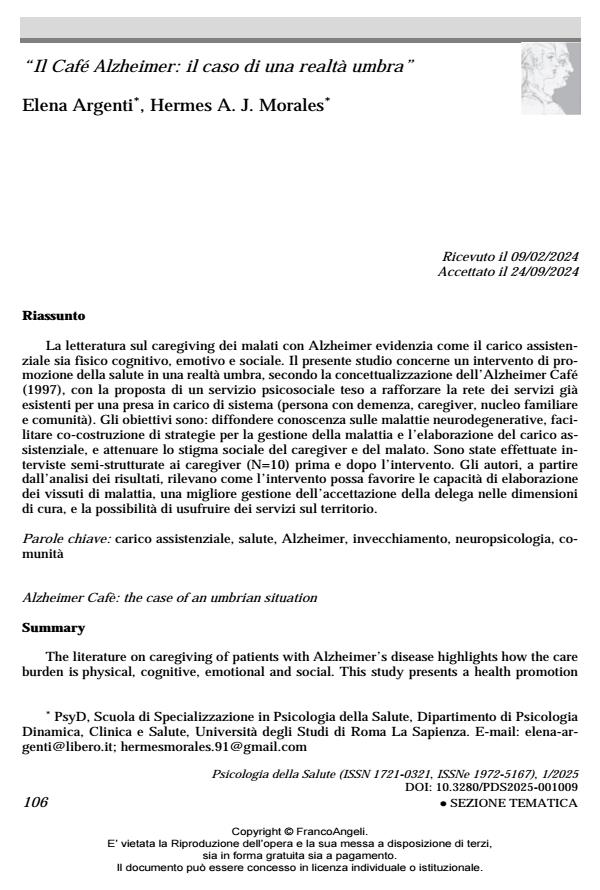Alzheimer Cafè: the case of an umbrian situation
Journal title PSICOLOGIA DELLA SALUTE
Author/s Elena Argenti, Hermes A. J. Morales
Publishing Year 2025 Issue 2025/1
Language Italian Pages 20 P. 106-125 File size 178 KB
DOI 10.3280/PDS2025-001009
DOI is like a bar code for intellectual property: to have more infomation
click here
Below, you can see the article first page
If you want to buy this article in PDF format, you can do it, following the instructions to buy download credits

FrancoAngeli is member of Publishers International Linking Association, Inc (PILA), a not-for-profit association which run the CrossRef service enabling links to and from online scholarly content.
The literature on caregiving of patients with Alzheimer’s disease highlights how the care burden is physical, cognitive, emotional and social. This study presents a health promotion intervention in an Umbrian reality, according to the conceptualization of the Alzheimer Café (1997), with the proposal of a psychosocial service aimed at strengthening the network of existing services for a systemic care (person with dementia, caregiver, family unit and community). The objectives are: to spread knowledge on neurodegenerative diseases, to facilitate co-construction of strategies for disease management and processing of the caregiver burden, and to reduce the social stigma of the caregiver and the patient. Semi-structured interviews were conducted with caregivers (N = 10) before and after the intervention. The analysis of the results shows how the intervention promotes the ability to process the experiences of the disease, a better management of the acceptance of the delegation in the dimensions of care, and the possibility of using services in the territory.
Keywords: caregiver burden, health, Alzheimer, ageing, neuropsychology, community
Elena Argenti, Hermes A. J. Morales, “Il Café Alzheimer: il caso di una realtà umbra” in "PSICOLOGIA DELLA SALUTE" 1/2025, pp 106-125, DOI: 10.3280/PDS2025-001009